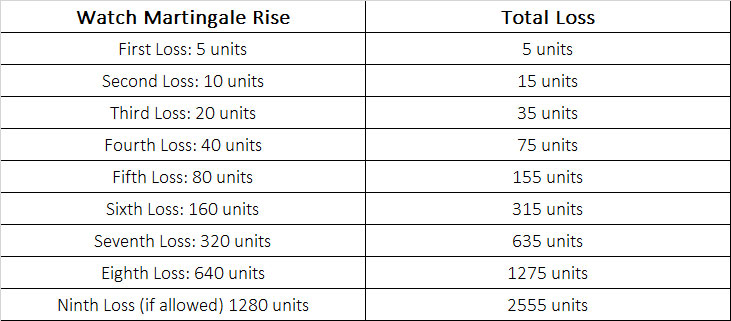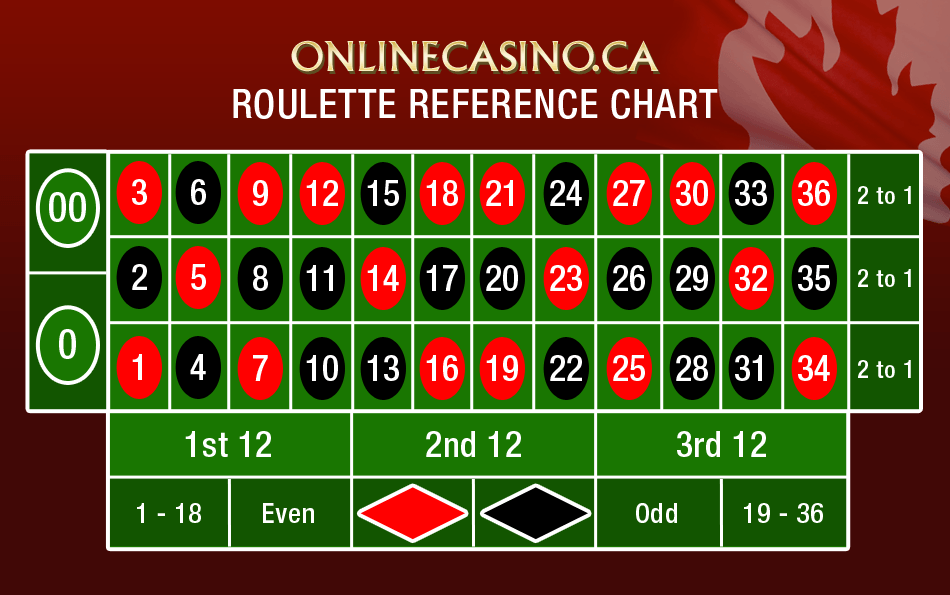How many times in a row has a little ball landed in the same pocket of a Roulette wheel, i.e. how many times has a single number occurred in a row? And how about the same color? What is the probability of these events and a potential impact on a play?
Record Occurrence of a Single Number in Roulette
Every spin is a new game and the odds remain the same. IF there were no green zeros then it would be 50/50. The odds are better at European Roulette with only ONE green zero, as opposed to American Roulette with a ZERO and a DOUBLE ZERO. If you see red come up 99 times in a row, either bet on red or move to another table. The net winnings on a roulette wager can be thought of as a discrete random variable. If we bet $1 on red and red occurs, then we win our dollar back and another dollar. This results in net winnings of 1. If we bet $1 on red and green or black occurs, then we lose the dollar that we bet. This results in net winnings of -1.
The probability that any single number occurs is 1/37 in French Roulette and 1/38 in American Roulette (there are 36 numbers + zero + double zero in American Roulette). There is no doubt that it is a great coincidence when the same number comes up again and again.
The longest reliable series was registered at the hotel El San Chuan in Puerto Rico on 9 June 1959. During the course of the American Roulette, number ten occurred even six times in a row! The probability of such (successive) events is determined by a multiplication of individual events. Therefore the probability that the same number comes up six times in a row is:
(1/38) ˟ (1/38) ˟ (1/38) ˟ (1/38) ˟ (1/38) ˟ (1/38), that is:
(1/38)6 = 0.000000000332122593261671.
That is a very small number indeed, roughly three billionths only. If we convert this probability into true odds that would have to be offered to us by a casino, we get the value 3,010,936,384 to one. The true (fair) odds are calculated as a reciprocal of the probability, that is 1 ÷ probability. If such a bet on a series of outcomes was possible in Roulette, we would win $3 billion for a $1 bet(!)
It is important to add that the above-mentioned calculation of probability deals with a multiple (successive) events, i.e. we can ask this question: What is the probability that the same number in Roulette comes up 6 times in a row?
Since it would be a different case if e.g. number 10 occurred and after that before the new spin we asked what was the probability that number ten came up again? In this case the answer would be 1/38 (in terms of American Roulette), because any number could occur with the same probability 1/38 in every new spin. That is what we call a simple event in contrast with a multiple event(s) whereas the probabilities of individual events are multiplied (→ Articles on Probability).
The true odds for a 1 to 10fold repetition of the same number are shown in the table below. It is the same mechanism as if a sporting bet company or a casino offered the odds for a victory of some home team in some football match (→ The Odds Determination and Calculation).

| The Same Number Comes Up in a Row | True Odds to One in FRENCH Roulette | True Odds to One in AMERICAN Roulette |
|---|---|---|
| 37 | 38 | |
2˟ | 1,369 | 1,444 |
| 50,653 | 54,872 | |
4˟ | 1,874,161 | 2,085,136 |
| 69,343,957 | 79,235,168 | |
6˟ | 2,565,726,409 | 3,010,936,384 |
| 94,931,877,133 | 114,415,582,592 | |
8˟ | 3,512,479,453,921 | 4,347,792,138,496 |
| 129,961,739,795,077 | 165,216,101,262,848 | |
10˟ | 4,808,584,372,417,850 | 6,278,211,847,988,230 |
The odds are reciprocal values of the probabilities – the higher they are, the lower the probabilities are. The case of the above-mentioned record series is marked green. Consider also the difference that is made by one extra number in American Roulette (the double zero).
Record Repetition of the Same Color in Roulette
There are no exceptions that the same color appeared more than 20 times in a row in practice. The record was registered in 1943, when red color came up 32 times in a row! The probability of such event in French Roulette is (18/37)32 = 0.000000000096886885 with the corresponding odds 10,321,314,387:1.
The probability of the 32fold repetition of the same color in American Roulette is much more lower: (18/38)32 = 0.00000000004127100756 and the odds are 24,230,084,485:1. Thus this is even less likely than occurrence of a single number six times in a row. Again it is clearly demonstrated what kind of importance (a negative one for players) has just one extra number in American Roulette.
Now imagine that you used the Martingale betting strategy (→ see the first test of the Martingale system), whereas the next bet is doubled if your bet loses...
Odds Of 7 Reds In A Row Roulette Numbers
→ Testing & Simulations of Roulette Bets & Strategies
With the exception of a tiny handful of punters, no player can beat the tables consistently without taking advantage of great streaks of luck. Beating roulette with streak bets can be both fun and profitable.
Roulette players tend to love their game so much that they adhere to what Nick “The Greek” Dandalos said, “The only thing as good as gambling and winning, is gambling and losing.”
In an effort to find any way possible to supplement or enhance their chances at the roulette table, enthusiasts tend to use betting systems that increase their time at the table without necessarily increasing their overall odds of winning.
The simple fact of roulette is that the house has the advantage and will win one more bet out of every 37 spins than the player. However, roulette betting systems can take advantage of streaks and provide a player with the opportunity to increase their bankrolls in specific situations.
| CASINO | BONUS | RTP | RATING | REVIEW | |
|---|---|---|---|---|---|
| 1 | T&C APPLY | PAYOUT | 10 | READ REVIEW | PLAY NOW |
| 2 | T&C APPLY | PAYOUT | 9.6 | READ REVIEW | PLAY NOW |
| 3 | T&C APPLY | PAYOUT | 9.3 | READ REVIEW | PLAY NOW |
| 4 | T&C APPLY | PAYOUT | 9 | READ REVIEW | PLAY NOW |
| 5 | T&C APPLY | PAYOUT | 9.4 | READ REVIEW | PLAY NOW |
Betting Against a Streak
The Martingale system is one of the best known and easiest to apply betting systems. The player simply doubles their bet each time they lose and waits for a winner. Many roulette players employ this system with an even money bet (odd or even, red or black, first 18 or second 18) after seeing the opposite side hit three times in a row.
The logic that the other side is now due to hit isn’t actually logic at all, it’s the classic gambler’s fallacy that the odds of an event happening are going to even-out quickly by returning a series of events that are the opposite of what has just been observed.
On each spin of the ball, the chance of red coming up is 48.7%. On a single zero wheel, if a bet on red wins .487% of the time, the odds of two consecutive red spins is .237, three in a row is .115, four in a row is .0562, and five in a row is .0274. That means a streak of five happens about once in 36.5 spins, and we’ll round up to 37.
So, if you see four straight black spins, does that mean the next spin has to be red (or green) except in one case out of 37? No. The odds are still 48.7% that black is coming back. However, that’s what keeps Martingale players using their system. They will win their small bet many times before they run into a streak that wipes out their current table bankroll.
Odds Of 7 Reds In A Row Roulette Rules
A player will see six consecutive black spins about once in 75 spins, seven consecutive about once in 154 spins. That’s why Martingale players can win so many times, build up a little bankroll, and have it in their head that the system is a winner. Because of those long odds, a player may win 100, 200, or even 300 straight betting opportunities.
Want to give it a try yourself? Give Lonnie’s roulette simulations a look – click on bet, make the number of spins 100, and see if you get a streak of over 7 on an even-money bet. The results might surprise you!
Dodging the bullet of casino odds is like Russian roulette and you’ve got five chances out of six of winning, and one chance in six that will blow your bankroll out of the water. The problem with the Martingale and many other roulette systems is that you are constantly risking a small fortune to win a single bet. Give it a shot, win a few bets, and consider yourself lucky. Don’t expect it to always work.
Betting With a Streak
Instead of betting against a streak, some players have had great success by anticipating a streak of even-money outcomes continuing. With this system, the player simply chooses an even-money bet (odd/even, red/black, 1-18/19-36) and places a single five-unit wager. When it loses it is replaced with a new five unit wager. When it wins, let the winnings ride until it wins five straight times for a payoff of 155 units.


If every bet was a win or a loss, the house would win its 2.7% and that would be it. However, due to several small streaks happening before a streak of five straight appears, the bettor will not lose 19 of every 37 spins. However, it can be a good stretch before a winning streak of five straight appears.
An added twist to this strategy is to pull back a single chip after the first three wins of 5, 10, and 20, so 35 rides on the bet. If this wins, two chips are pulled back so 60 rides. If the bet wins again, either the total of 120 is pulled back, or four chips are pulled back and 100 rides. If the 100 bet wins, the entire 200 is now pulled back and the opposite side of the bet (even – now odd, etc.) is made for a single 5-unit wager.
Experiment with your own mixture of these bets to find a happy medium. If you don’t have a wheel at home, try the free online roulette game on the American, European or French roulette pages.
Barring that, you can always take a deck of cards and make your own set-up of 18 even numbers, 18 odd numbers, and an ace to represent the zero, and shuffle away to try a streak system.